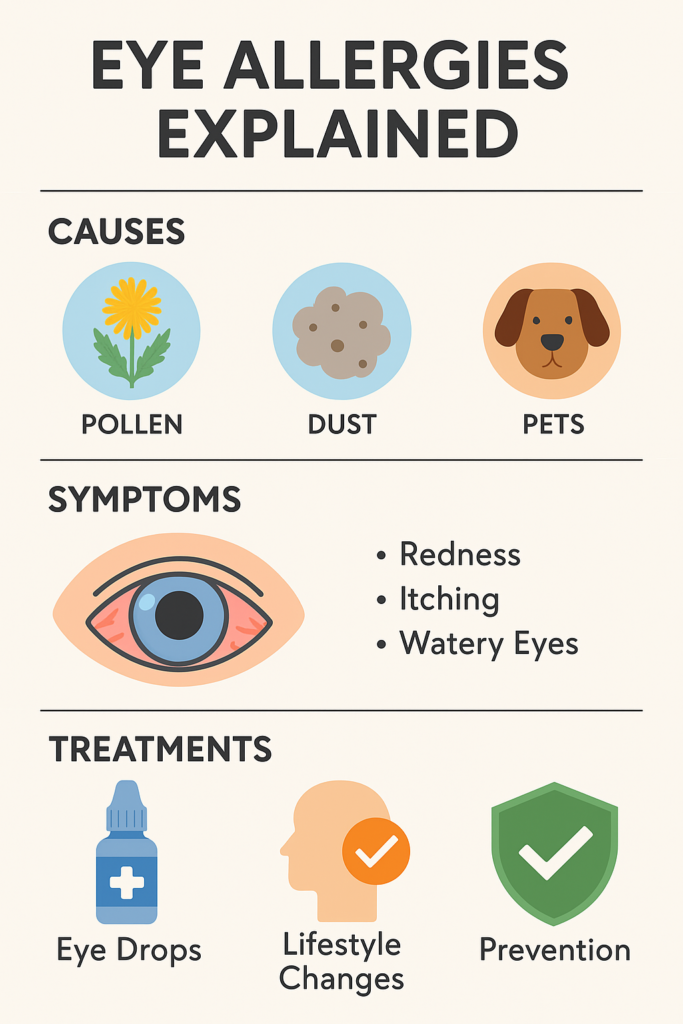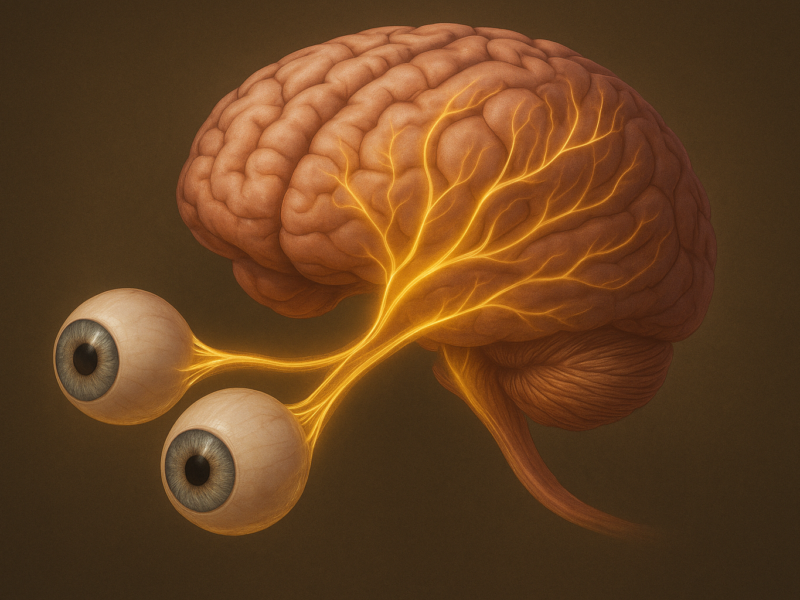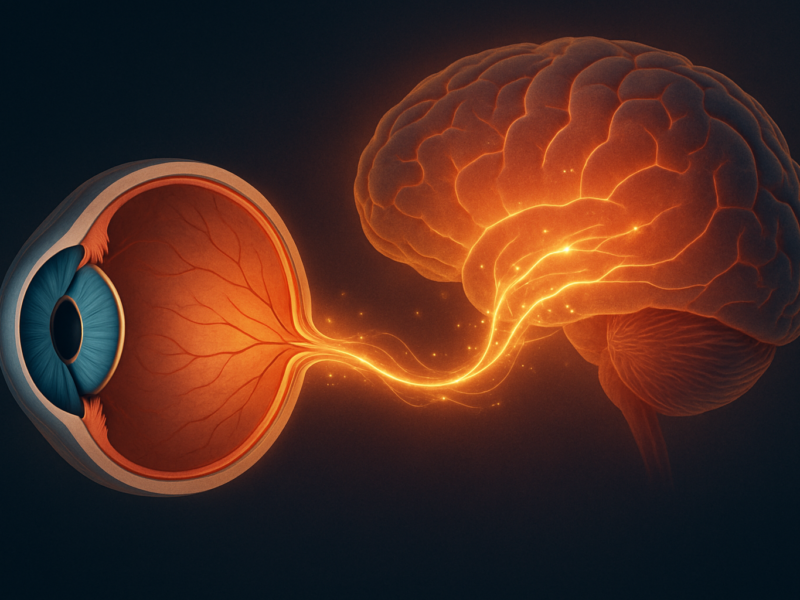Introduction
If your eyes feel itchy, watery, swollen, and irritated during certain seasons or after exposure to dust and pets, you might be suffering from eye allergies, also known as allergic conjunctivitis. While these allergies are not dangerous to eyesight, they can significantly affect your daily comfort and productivity.
In this guide, we’ll explore:
Prevention strategies for long-term relief
What causes eye allergies
Common symptoms
Effective treatments and home remedies
1. What Are Eye Allergies?
Eye allergies happen when the immune system overreacts to normally harmless substances like pollen, dust, pet dander, or mold. Instead of ignoring them, your body produces histamine — a chemical that causes inflammation, redness, and swelling in the eyes.
There are two main types:
- Seasonal Allergic Conjunctivitis (SAC): triggered by pollen in spring and summer.
- Perennial Allergic Conjunctivitis (PAC): caused by year-round allergens such as dust mites and pets.
Did You Know? 💡 Up to 40% of people experience some form of eye allergy during their lifetime.
2. Causes of Eye Allergies
The most common allergens include:
- Pollen (trees, grass, weeds)
- Dust mites
- Pet dander (cats, dogs, birds)
- Mold spores
- Smoke & pollution
- Perfumes, cosmetics, and contact lens solution

3. Symptoms of Eye Allergies
Symptoms vary in intensity but usually include:
- Itchy or burning eyes
- Redness
- Excessive tearing
- Puffy or swollen eyelids
- Sensitivity to light (photophobia)
- Blurred vision (in severe cases)
Useful Tip: If only one eye is affected, it may not be allergies but an infection — consult an eye doctor.
4. Effective Relief Strategies
A) Over-the-Counter Remedies
- Antihistamine eye drops → reduce redness & itching
- Lubricating/artificial tears → wash out allergens
- Cold compresses → soothe irritation
B) Prescription Medications
- Mast cell stabilizers → prevent allergic reactions before they start
- Corticosteroid drops → for severe cases (short-term only)
C) Lifestyle Adjustments
- Keep windows closed during pollen season
- Wash face and hands after being outdoors
- Use air purifiers with HEPA filters
- Wash bedding frequently in hot water
5. Natural Remedies for Eye Allergies
- Chamomile tea compresses – reduce swelling
- Cucumber slices – soothe puffiness
- Omega-3 supplements – lower inflammation
- Vitamin C-rich foods – boost immune system
Did You Know? 💡 Omega-3 fatty acids not only reduce inflammation but also help relieve dry eye symptoms.
6. Prevention Tips
- Shower after being outdoors during high pollen days
- Wear sunglasses to block pollen and dust
- Avoid rubbing your eyes (it worsens symptoms)
- Keep indoor humidity levels low to reduce mold growth
- Replace HVAC filters every 2–3 months
❓ FAQ Section
Q1: Are eye allergies contagious?
A: No, unlike viral or bacterial conjunctivitis, eye allergies are not contagious.
Q2: Can eye allergies cause permanent vision loss?
A: No, but severe or untreated allergies may worsen dry eyes and cause discomfort.
Q3: What’s the fastest way to relieve eye allergy symptoms?
A: Antihistamine drops combined with cold compresses provide quick relief.
Q4: Can children develop eye allergies?
A: Yes, eye allergies are common in children, especially those with asthma or eczema.
Q5: Should I stop wearing contact lenses if I have eye allergies?
A: Yes, during flare-ups you should switch to glasses until symptoms subside.
✅ Key Takeaway
Eye allergies are uncomfortable but manageable. By combining medical treatment, home remedies, and prevention strategies, you can enjoy clearer, healthier, and more comfortable eyes.


